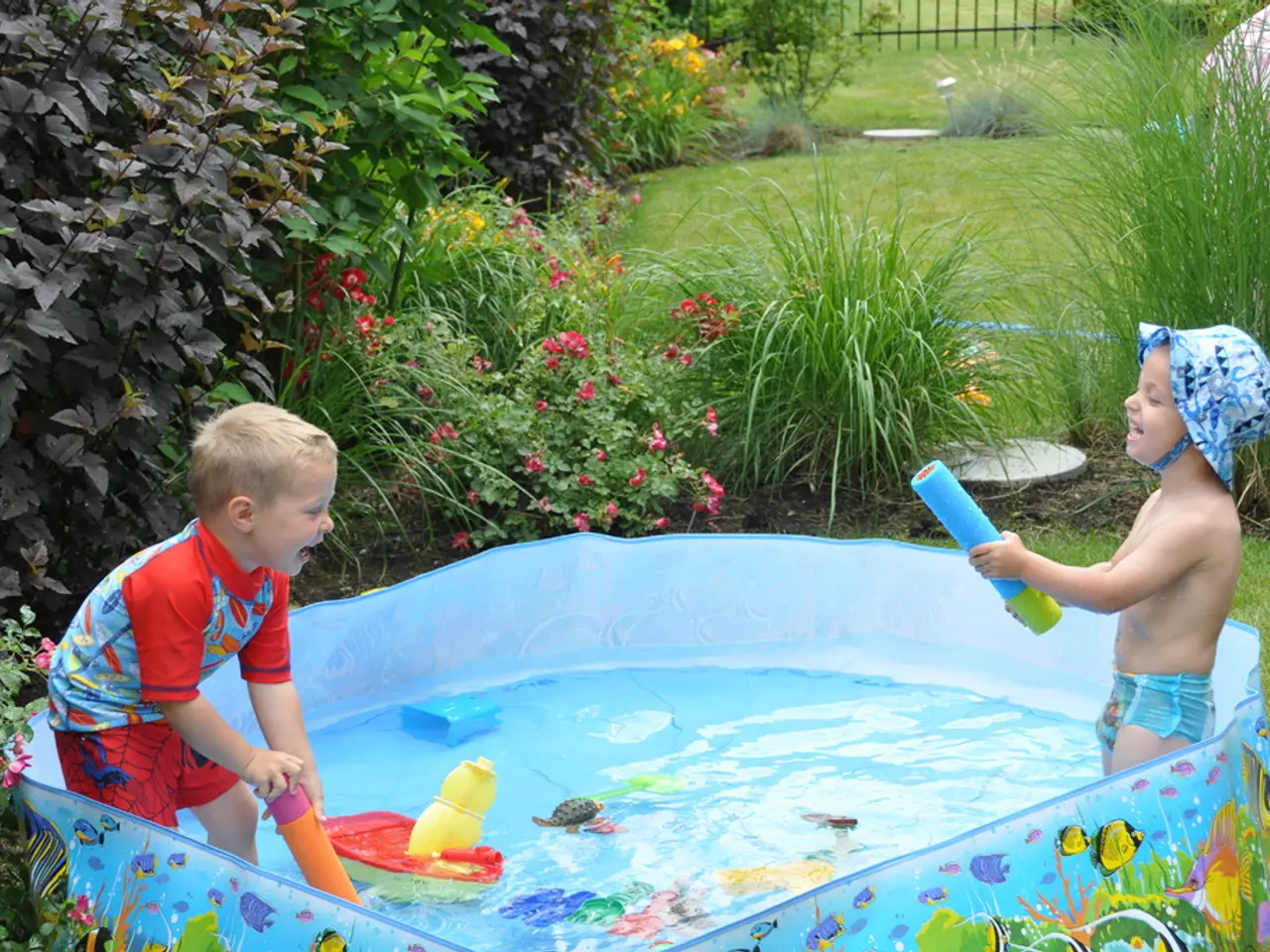Science Exploration for Scorching Summer Days
================================================================================
Summer is here, and it's the perfect time for children to learn and have fun with a series of outdoor science experiments. This article, last updated on June 13, 2025 by Emma Vanstone, presents a collection of activities suitable for kids of all ages.
Making Colored Ice and Painting on Ice
Freeze colored water in ice cube trays using food coloring, then let kids paint on the ice blocks as they melt with brushes or droppers of colored water. This hands-on activity combines art and science, allowing children to observe the melting process.
Melting Ice Cubes Science
Set up experiments testing how fast different ice cubes melt by changing variables like salt application, sun exposure, or wrapping materials. This is a fun and engaging way to observe changing states of matter.
Icy Baking Soda Volcano
Build a volcano using baking soda and vinegar, then pour a mixture with crushed ice on top to create a "cold" volcanic eruption. This unique experiment demonstrates the effects of temperature change and chemistry.
Ice Cream in a Bag
Mix cream, sugar, and vanilla in a small bag, place it inside a bigger bag with ice and salt, and shake to freeze the mixture quickly. This demonstrates the principle of freezing point depression and phase change.
Flavored Soft Ice Treats
Create soft ice or slushy drinks by freezing diluted flavored liquids with salt and ice. This activity showcases the freezing and melting processes while keeping children cool in the summer heat.
Paddling Pool Water Exploration
Use floating and sinking experiments or test absorption and water density with everyday items in shallow paddling pools. This encourages exploration of fluid dynamics and materials science, making learning enjoyable and interactive.
Sundial Making
Build a simple sundial with sticks and paper to observe how shadows change with the position of the sun. This activity teaches children about Earth's rotation and time measurement.
Water Wall
Set up a vertical panel with holes and containers to pour water through. Children can observe flow, gravity, and cause-effect in fluid movement. Adding colors or small objects can make the experiment even more engaging.
Shadow Frames
Create frames to cast and trace shadows at different times, investigating how shadow length and direction change during the day. This activity reinforces solar movement concepts while providing a creative outlet for children.
Summer Science Challenges
Use multiple mini-experiments like “sink or float,” “color mixing on ice,” or “bubble freezing” to engage kids in ongoing outdoor science discovery through varied sensory and observation activities.
Additional Activities for Paddling Pools
If you have a paddling pool available, there are five additional science activities for the pool. These include racing lolly sticks in the pool and painting on a sheet of ice. These outdoor experiments can keep children entertained during school holidays.
Cooling Drinks with Ice and Salt
Did you know that ice and salt can be used to cool a drink quickly? This simple trick uses the same science concept as making ice cream in a bag.
Sinking and Floating Experiments
Conduct experiments with various objects to test their buoyancy. This activity helps children understand the principles of density and how it affects whether an object sinks or floats.
Ice Cream Soup
Try making Ice Cream Soup using Rainy Day Mum's recipe for a tasty and fun twist on the summer science experiments.
50 Fun Summer Science Activities
There are 50 fun summer science activities available for kids, ensuring that there's something for every child to enjoy and learn from.
These activities combine fun, sensory play, and science learning outdoors in summer heat, using ice and water in different ways to demonstrate states of matter, temperature effects, chemistry, light, and more.
- By experimenting with melting ice cubes, children can observe changing states of matter in the activity called "Melting Ice Cubes Science."
- For a fun twist on the traditional ice cream making process, you can create "Ice Cream Soup" using a recipe found online.
- The "Stem Education" field can be explored through outdoor science experiments, as demonstrated in this collection of activities.
- Paddling pools can serve as platforms for additional science activities, such as conducting "Sinking and Floating Experiments."
- The principle of freezing point depression is demonstrated in the activity of "making ice cream in a bag," a fun and educational exercise for kids.




